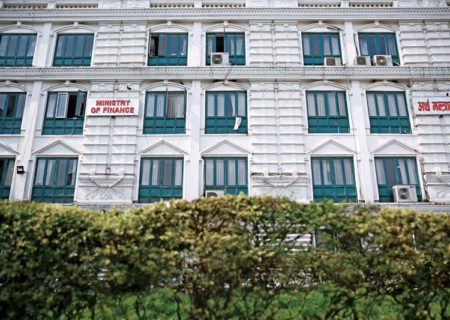MoF proposes steep discount on electricity bills of industries operating in off-peak hours
Kathmandu, April 1
With an aim to maximise the utilisation of generated electricity, the government is planning to offer up to 50 per cent discount on electricity bills of industries operating in off-peak hours (night time).
The Ministry of Finance (MoF) has proposed to provide discount of up to 50 per cent on electricity tariffs to the industries that operate at night. The concession is aimed at minimising the loss of generated electricity during the night.
Finance Minister Yubaraj Khatiwada said that the government is mulling over providing discount of between 30 per cent and 50 per cent to the industries that operate at night.
The MoF proposal, however, can only materialise after the Ministry of Energy, Water Resources and Irrigation and Nepal Electricity Authority (NEA) formally decide to reduce the electricity tariff for night time industrial users.
NEA expects the country’s power generation to surge once NEA-backed projects such as 456-megawatt Upper Tamakoshi, 111 MW Rasuwagadhi and 57 MW Sanjen, as well as other projects being developed by the private sector start commissioning power.
In this regard, the government is preparing a strategy to maximise the utilisation of electricity produced during the night time.
However, due to the coronavirus outbreak, most hydropower projects that were to be completed and begin operation in the next fiscal may have to postpone their commencement date.
Following the government-imposed nationwide lockdown to prevent and control the spread of coronavirus in the country, electricity consumption has plunged by almost half — mostly because majority of industries have halted their operations.
Currently, electricity is being consumed for household purpose only.
A few days ago, a Cabinet meeting had granted a discount of 25 per cent on electricity tariffs for consumers.
The government has decided to implement the decision until the situation created by the coronavirus outbreak settles down.
NEA has stated that this move has been introduced to promote the use of induction stoves amid the growing shortage of liquefied petroleum gas (LPG), commonly known as cooking gas.
A version of this article appears in e-paper of The Himalayan Times on April 02, 2020.






